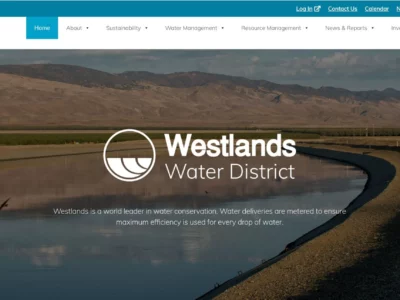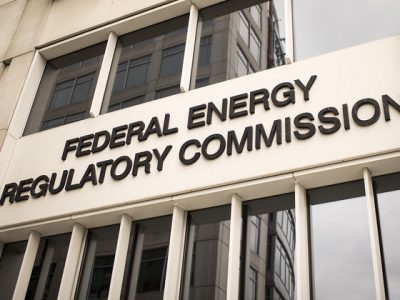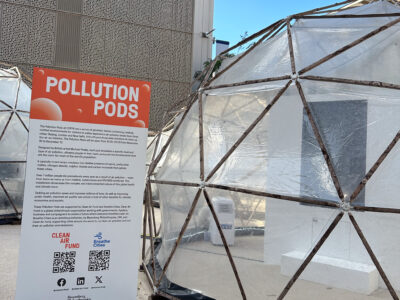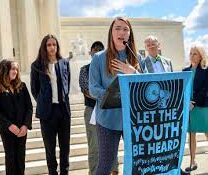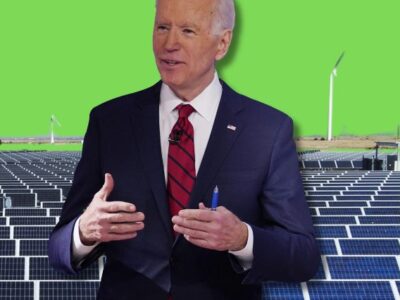California Courts Foil Westlands Water District’s Grinch-Like Water Grab
Westlands' Efforts to Permanently Privatize California Water Opposed by Unique Coalition & Rejected by Skeptical Judges
While there's a great deal that's dysfunctional and downright wrong about water law and policy in California, occasionally there are positive developments to report. So it's most satisfying to end 2023 with some good news regarding water in the Golden State. This is the saga of how the Westlands Water District tried to privatize a permanent supply of massive amounts of California water from a government-operated water project; the remarkable coalition of interes...
CONTINUE READING2023: The Good, the Bad, and the Ugly
Here’s what happened in the world of energy and environment.
A lot has happened this year, with political turmoil in the House of Representatives, indictments of Donald Trump and associates, and a close scrape with default on the national debt. In the world of energy and environment, the picture has also been mixed, but with more good than bad. The Good. California enacted two major laws requiring corporations to disclose their carbon emissions and financial risks relating to climate change. Similar regulations are under...
CONTINUE READINGReviewing Agency Indecision
The Third Circuit straightens out a quirk in FERC law, to the benefit of renewable energy.
A case decided by the Third Circuit on Dec. 1 is important for two reasons. It clarifies a puzzling procedural rule applying to the Federal Energy Regulatory Commission (FERC). And it upholds an important policy shift regarding renewable energy by the country’s largest grid operator. Since you’re probably more interested in the second point than the first one —unless you’re a real administrative law geek— let’s start with that one. The grid operator is P...
CONTINUE READINGDreamin’ of a White Christmas
It didn’t start out as a song about climate change, but it could be prophetic.
To the modern ear, it sounds like a song about climate change: I'm dreaming of a white Christmas Just like the ones I used to know Where the treetops glisten And children listen To hear sleigh bells in the snow The song actually isn’t about climate change — the lead-in, which is much less familiar, tells us that the singer is now living in Beverly Hills , where Christmas means palm trees rather than snow. But the song could turn out to be prophetic. As it ...
CONTINUE READINGCOP28: “The Methane COP”
Methane was at the center of COP28. Here are some of the most relevant announcements of this year's Conference of the Parties.
By far, the most ubiquitous figure at COP28 was that of John Kerry. The U.S. climate envoy strolled through the labyrinthine and confusing alleys of Dubai's Expo City wearing an impeccable suit despite the almost 100-degree Fahrenheit winter weather of the United Arab Emirates. When he wasn't walking, he was talking about methane, earning him the nickname Mr. Methane. Until recently, few could have anticipated that methane, a GHG not even mentioned in the Paris Agreem...
CONTINUE READINGCentering Public Health at the UN Climate Talks
Guest Contributor Meleana Chun-Moy reflects on COP28 and the growing recognition of the intersection between the climate crisis and human health.
The climate crisis is a public health crisis, and it finally seems global leaders have recognized that fact. With the backdrop of the first-ever Health Day at the annual UN climate conference, air quality in Dubai soared, as PM2.5 pollution reached 155 micrograms per cubic unit. The World Health Organization states the annual average concentrations of PM2.5 should not exceed five µg/m3. Air pollution is harmful to human health as it exacerbates and causes an increas...
CONTINUE READINGA Big Year on Legal Planet
Here are the 12 most popular topics in environmental law and climate policy on Legal Planet based on our most-read posts from 2023.
It’s an understatement to say that 2023 was a transformative year for the U.S. climate movement. We saw rapid implementation of landmark federal climate laws, a series of big actions on methane emissions, a deal on Colorado River water usage, and bigger-than-expected climate victories in Sacramento. EPA’s control of toxic chemicals was tested, the U.S. renewed talks with China (so did California’s governor), and young people won big in a first-of-its-kind clima...
CONTINUE READINGWhat EXACTLY Did the UN Conference Decide?
OK, I’m a lawyer: I think it’s important to look at the text.
Having read a lot of takes on the outcome of the latest UN climate conclave, I wanted to see for myself what the agreement says. The key provision in the latest international agreement on emissions reduction is section 28 of Article 2(A).. It states the position of the Conference of the Parties — the consensus position of all 200 countries — emission reductions. This group of nearly all the world's nations says that it: [R]ecognizes the need for deep, rapid an...
CONTINUE READINGThe Children’s Crusade
The latest climate lawsuit is well intended, but it's almost certain to lose and could do serious harm.
The Children’s Trust has filed another lawsuit, one that gives me serious qualms. I know their hearts are in the right place, but I wish they had thought twice about filing this case. I struggle to find any benefit from the litigation. It has no apparent chance of success. Worse, it disparages people in the federal government who have devoted their lives to fighting climate change. And it may also feed into the dangerous message that there is no real difference be...
CONTINUE READINGHow Will Americans Learn to Love the Inflation Reduction Act?
Pres. Biden has toured the country to sell his climate victories, but polls show it isn’t resonating yet with voters. Will Trump attacks help?
Last February, on the eve of the State of the Union, President Joe Biden embarked on a victory lap for his landmark climate laws. At the time, the White House was focused on explaining to the American people how the Bipartisan Infrastructure Law and the Inflation Reduction Act would boost jobs and lift the economy. Biden did so without uttering the word “climate.” I wrote then about this decision to stay quiet on the climate impacts of his legislation, asking “...
CONTINUE READING



